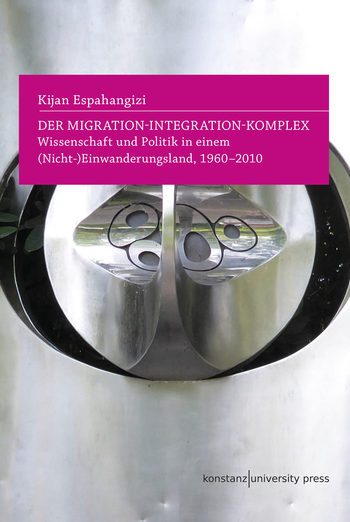Kijan Espahangizi has a new book available: Der Migration-Integration-Komplex. Wissenschaft und Politik in einem (Nicht)Einwanderungsland, 1960–2010 (Wallstein, 2022), in the Konstanz University Press series. It is also available in Open Access. The relevance of its themes to our blog and network are readily apparent from the publisher’s description, translated here:
A world without migration no longer seems imaginable. And arguments about questions of integration have long shaped the debates in immigration countries that wish they were not. The book by Kijan Espahangizi therefore starts with the words "migration" and "integration" and, using Switzerland as an example, explores the question of why two social science terms that were hardly used publicly a few decades ago are now indispensable. With their ascent in the discourse, our view of modern society has changed fundamentally.
The starting point of the book is the ‘discovery’ of unplanned immigration in the course of the employment of foreigners in the 1960s and the still controversial question of how immigration should be structured and controlled. Since then, a ‘complex’ of actors, institutions, and discourses, organized around the concepts of migration and integration, has gradually emerged and has increasingly moved from the fringes to the center of social debates. Kijan Espahangizi therefore follows the terms into the thicket of social practice: to the churches, aid organizations, trade unions, state authorities, political parties, foreigners' organizations, and social movements. Why and when were concepts of migration research taken up in society and politics, how have the spaces of imagination and action shifted, and how, conversely, was science shaped by political processes? With answers to these questions, the book opens up four fundamental shifts in perspective that can be observed internationally: the sociological expansion of the immigration debate to society as a whole from the 1960s, its political appropriation in the 1970s, the cultural turnaround, and, finally, a globalization of the migration issue in the 1980s and 1990s.

